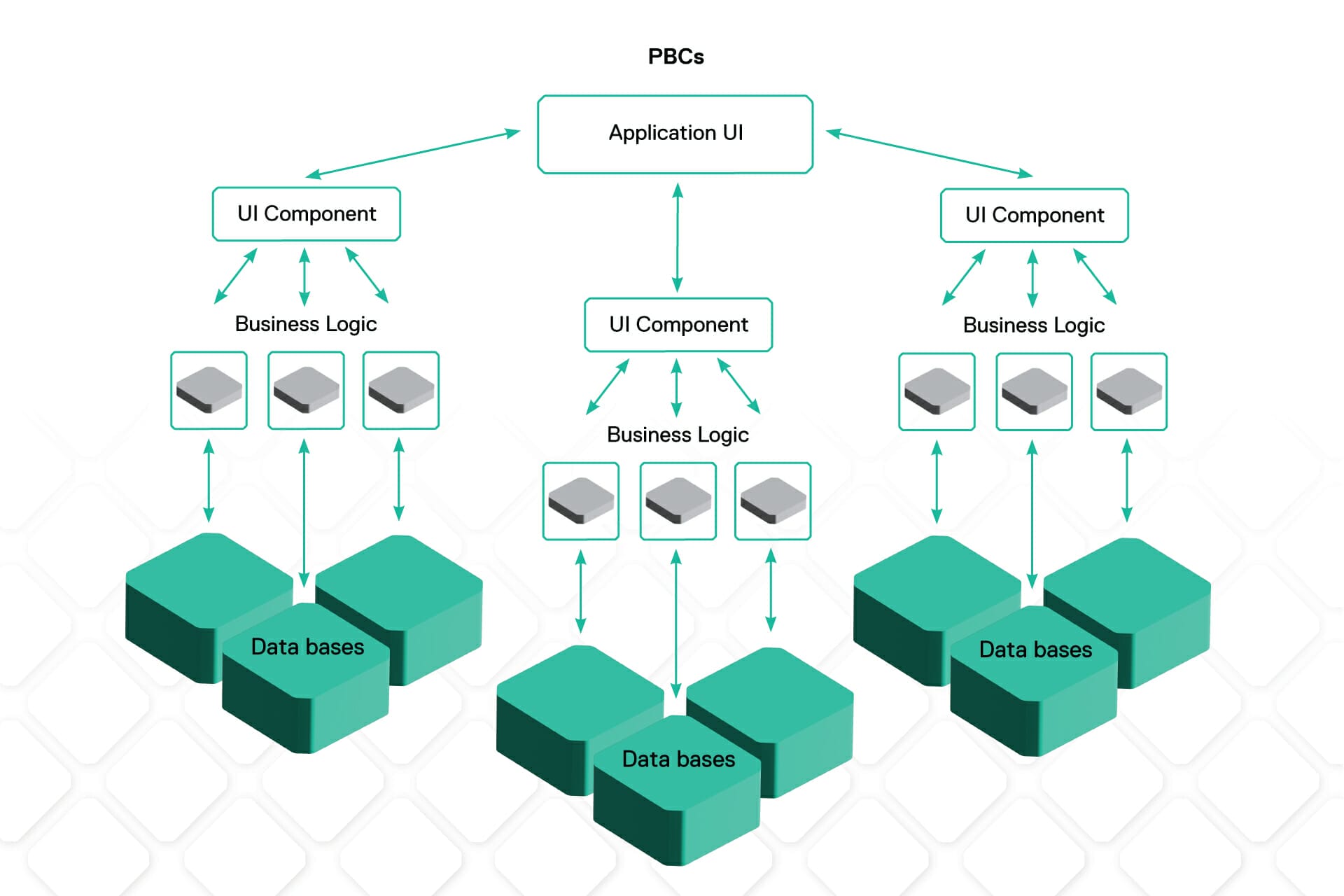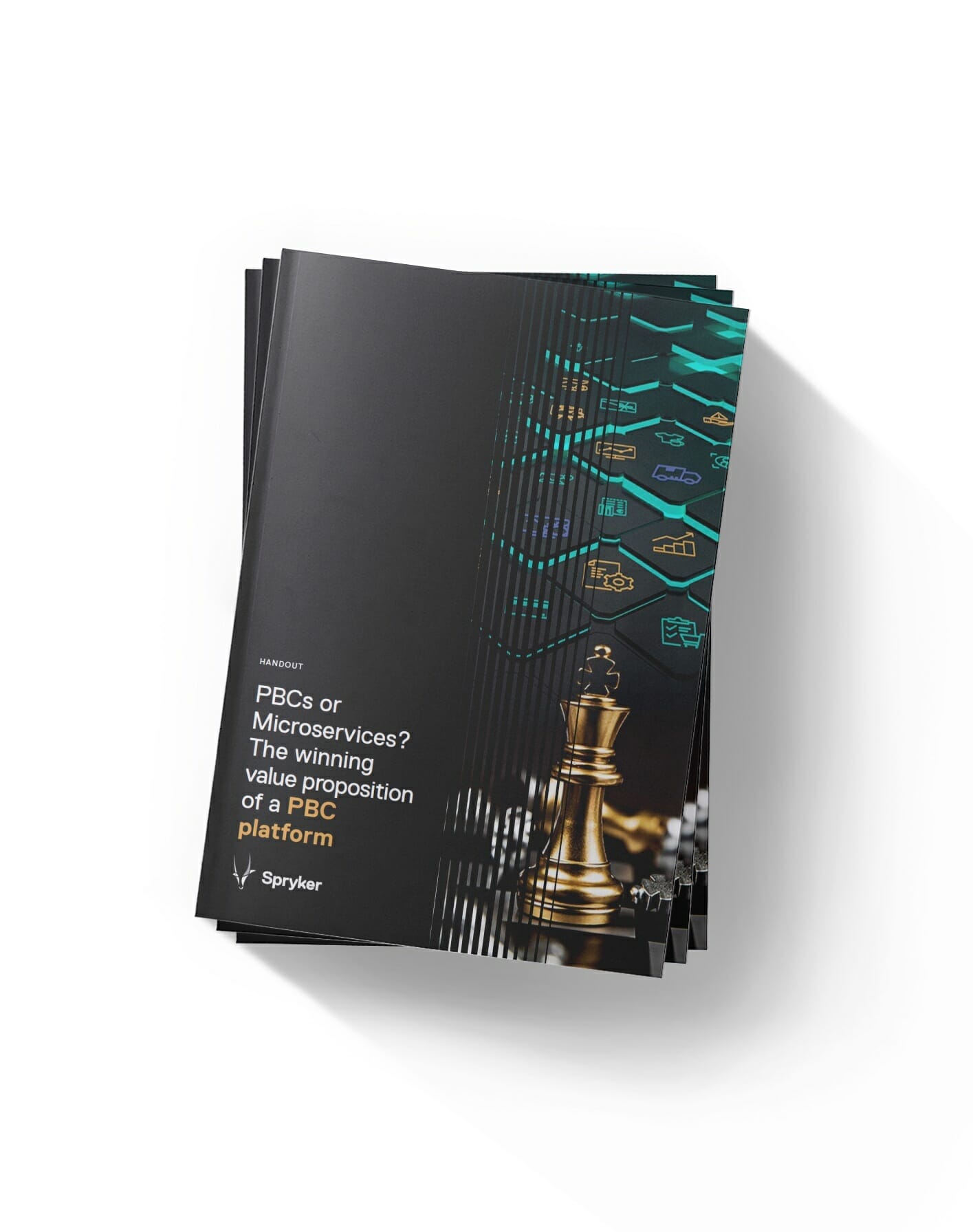PBCs (Packaged Business Capabilities)
A Gartner-defined term, PBCs are an independent assembly of features grouped into larger clusters, representing a well-defined business capability or functionality. They’re the perfect in-between solution between slow monolithic applications and small, hard-to-manage microservices.

What Packaged Business Capabilities (PBCs) Means
Packaged Business Capabilities (PBCs) are software components made of a collection of features that serve defined business functions. They can quickly and seamlessly be integrated into existing IT infrastructures and they can be flexibly swapped with other PBCs of third-party vendors, depending on individual needs. The agile and flexible nature of PBCs makes them a key factor of Composable Commerce and of a successful business setup, allowing for a best-of-breed approach.
Technically, a PBC is a bounded collection of a data schema and a set of services, APIs and event channels.
Gartner
PBCs represent a future-proof middle ground between sprawling, unmanageable microservices and inflexible, bulky monolithic platforms. Their ability to work independently of other PBCs allows agile updates, changes, and extensions, with no interference to the tech stack as a whole.
PBCs are usually logical business entities, such as storefront, Order Management or PIM (Product Information Management). Also, each PBC is adding actual business value into a system, with clear definitions of what and why it is necessary.
Benefits of PBCs
-

Enable composability
Composable commerce is gaining popularity in making enterprises thrive. PBCs are the building blocks of composability, and their ability to offer efficiency and high adaptability are the source of the success of this approach. Communication between different PBCs and other systems is based on an API infrastructure, to maximize speed and security.
-

Offer a best-of-breed approach
With PBCs, businesses can take advantage of the best solutions on the market, thanks to the ability to swap capabilities with third-party vendors’. As a result, companies can choose highly customizable solutions that respond to their unique business value.
-

Quickly solve common issues
Businesses can solve effectively common problems through PBCs. For example, a CRM increases conversion rates and average order values, or price management saves time by implementing your pricing strategy in one place.
-

Improve time to market and scalability
Initial setup and maintenance are quicker and smoother as PBCs are offered as intact units.
-

Avoid vendor lock-in
Vendor lock-in is practically unavoidable with monolithic architectures. On the other hand, third-party providers’ PBCs can be flexibly integrated into existing tech stacks.
Difference between PBCs and microservices
Microservices and PBCs are two similar terms that often get confused. Microservices are granular and independent components loosely coupled on the same platform. They are particular to one service alone. Due to their nature, they are also considered part of Composable Commerce. While microservices are tightly scoped and granular, PBCs are bundled units of APIs that serve a specific business function.

Packaged Business Capability Resources
Learn More About Microservices Packaged Business Capabilities
PBCs or Microservices? The winning value proposition of a PBC platform
Learn how PBCs can help build your perfect digital commerce platform.
Read Whitepaper







